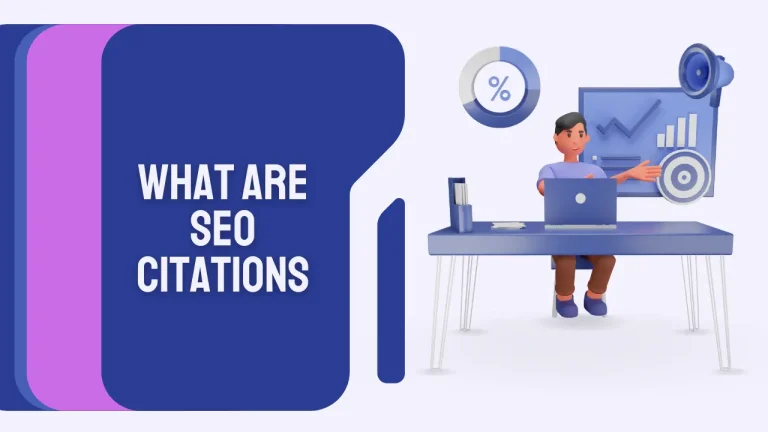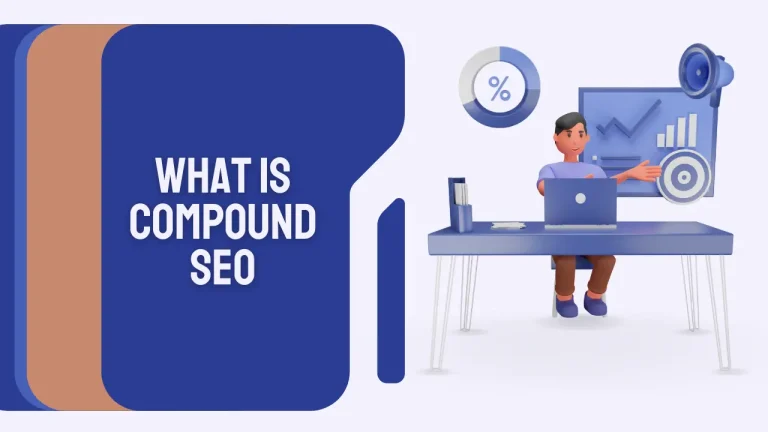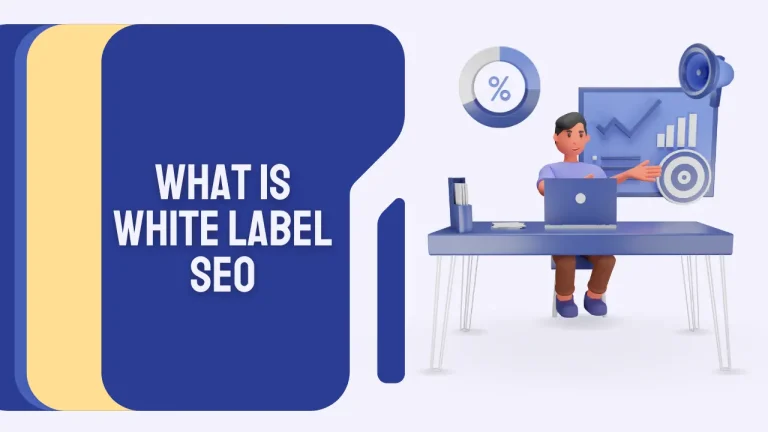What Is Seo In Digital Marketing
Are you ready to take your digital marketing game to the next level? Then it’s time to delve into the world of SEO. What Is Seo In Digital Marketing?
Search Engine Optimization, or SEO for short, is a crucial aspect of digital marketing that can greatly impact your online visibility and success. By strategically optimizing your website and content, you can improve your rankings on search engine results pages (SERPs) and attract more organic traffic.
In this article, we will explore the basics of SEO in digital marketing and provide you with valuable insights and techniques to boost your online presence. We’ll cover everything from on-page optimization, where we’ll dive into keyword research and content creation strategies, to off-page techniques like link building. Additionally, we’ll discuss technical considerations that can affect your website’s performance in search engine rankings.
So get ready to unlock the power of SEO in digital marketing and discover how it can propel your business forward. Let’s dive in!
Key Takeaways
- SEO is crucial for digital marketing and can greatly impact online visibility and success.
- On-page SEO optimization involves keyword research and strategically incorporating keywords into page titles, headings, meta descriptions, and content.
- Off-page SEO techniques include link building, social media optimization, and guest blogging to enhance website visibility and credibility.
- Measuring and analyzing SEO performance involves setting up Google Analytics, tracking keyword rankings, website traffic, and conversion rates.
Understanding the Basics of SEO
So, you want to understand the basics of SEO? Well, buckle up because this is going to be a wild ride that will transform your digital marketing game!

SEO, or search engine optimization, is all about making your website rank higher on search engine results pages (SERPs). To do this, you need to stay up-to-date with the latest SEO trends and implement SEO best practices. These trends and practices are constantly evolving as search engines like Google change their algorithms.
You need to optimize your website for both users and search engines by focusing on factors like keywords, content quality, backlinks, and user experience. By mastering the art of SEO, you’ll be able to drive more organic traffic to your website and increase conversions.
Now let’s dive into the exciting world of on-page SEO optimization where we’ll explore techniques for optimizing your web pages without writing ‘step’.
On-Page SEO Optimization
To optimize your website for search engines, you should focus on enhancing the on-page elements.
One crucial aspect of on-page SEO optimization is keyword research. By conducting thorough keyword research, you can identify the most relevant keywords to target in your content. These keywords will help search engines understand what your website is about and improve its visibility in search results.
Once you have identified the right keywords, it’s essential to optimize your content accordingly. This involves strategically incorporating these keywords into your page titles, headings, meta descriptions, and throughout the body of your content. By doing so, you’ll increase the chances of ranking higher in search engine results and attracting more organic traffic to your website.
Now that we’ve covered on-page SEO optimization, let’s move on to discussing off-page SEO techniques without skipping a beat.
Off-Page SEO Techniques
Boost your website’s visibility and credibility by implementing off-page SEO techniques that will expand your online presence and captivate potential customers. Here are three key strategies to consider:
- Link Building: Enhance your website’s authority by acquiring high-quality backlinks from reputable sources. A strong backlink profile can significantly improve your search engine rankings and drive organic traffic to your site.
- Social Media Optimization: Leverage the power of social media platforms to increase brand awareness, engage with your audience, and attract more visitors to your website. By creating compelling content, optimizing posts for relevant keywords, and actively participating in discussions, you can boost your online visibility and generate valuable leads.
- Guest Blogging: Collaborate with industry influencers or authoritative websites to publish guest posts featuring links back to your site. This not only helps establish you as an expert in your field but also generates valuable referral traffic.
By incorporating these link building strategies and optimizing social media channels, you can take a significant step towards improving your website’s SEO performance.
Transitioning into the subsequent section about technical SEO considerations…
Technical SEO Considerations
When it comes to technical SEO considerations, there are three key points that you need to pay attention to.
First, website speed and mobile optimization are crucial factors for improving user experience and search engine rankings.
Second, having a well-structured URL and site architecture helps search engines crawl and understand your website better.
Finally, implementing an XML sitemap and robots.txt file ensures that search engines can easily index your web pages while excluding any irrelevant content.
By focusing on these aspects, you can enhance your website’s performance in the digital marketing landscape.
Website Speed and Mobile Optimization
With lightning-fast loading times and seamless navigation on any device, your website becomes a user-friendly masterpiece that captivates your audience. When it comes to improving user experience and optimizing for mobile first indexing, website speed and mobile optimization are crucial factors to consider.
A slow-loading website can frustrate users and lead to high bounce rates, negatively affecting your SEO efforts. On the other hand, a fast-loading website not only enhances user experience but also boosts search engine rankings. To emphasize the importance of speed and mobile optimization, take a look at the table below:
| Benefits of Website Speed | Benefits of Mobile Optimization |
|---|---|
| Improved user engagement | Enhanced visibility |
| Lower bounce rates | Better accessibility |
| Higher conversion rates | Increased organic traffic |
By prioritizing website speed and mobile optimization, you lay a solid foundation for successful SEO strategies. Now let’s delve into the next section about URL structure and site architecture.
URL Structure and Site Architecture

Now that you’ve optimized your website speed and mobile experience, it’s time to focus on another crucial aspect of SEO in digital marketing: URL structure and site architecture.
A well-structured website not only improves user experience but also makes it easier for search engines to crawl and index your content. When designing your site structure, consider organizing your pages into logical categories and using descriptive URLs that contain relevant keywords. This will help search engines understand the hierarchy and relevance of your content.
Additionally, ensure that your site architecture allows for easy navigation, with clear menus and internal linking between related pages. Following these SEO best practices for site structure will boost your chances of ranking higher in search results and attracting organic traffic to your website.
Now let’s delve into the importance of XML sitemaps and robots.txt files…
XML Sitemap and Robots.txt
To enhance your website’s optimization, make sure you implement XML sitemaps and robots.txt files. These will effectively guide search engines through your site.
XML sitemaps are crucial for search engine indexing. They provide a roadmap of all the pages on your website. This helps search engines understand the structure and hierarchy of your site. It ensures that all relevant pages are crawled and indexed.
A well-optimized robots.txt file is also essential for better crawlability. It allows you to specify which parts of your site should not be accessed by search engine bots. This prevents them from wasting time crawling irrelevant or sensitive content.
By utilizing XML sitemaps and optimizing your robots.txt file, you can greatly improve the visibility and accessibility of your website to search engines.
Transitioning into measuring and analyzing SEO performance, it’s important to track the impact of these optimizations on your website’s rankings and traffic.
Measuring and Analyzing SEO Performance

If you want to effectively measure and analyze the performance of your SEO efforts, there are a few key points you need to consider.
First, setting up Google Analytics is crucial as it allows you to track various website metrics and gain valuable insights into user behavior.
Additionally, tracking keyword rankings will help you understand how well your website is ranking in search engine results pages.
Analyzing website traffic and conversion rates will provide important information about the effectiveness of your SEO strategies.
Setting up Google Analytics
Setting up Google Analytics is essential for understanding your website’s performance and unleashing its full potential, allowing you to experience the exhilaration of data-driven decision making. By following this Google Analytics setup guide, you can gain valuable insights into your website’s traffic, user behavior, and conversion rates. With Google Analytics, you have access to a wide range of benefits such as tracking the effectiveness of your marketing campaigns, identifying high-performing pages, and understanding audience demographics.
To help you visualize these benefits, here is a breakdown of what Google Analytics offers:
| Benefit | Description |
|---|---|
| Traffic Sources | Analyze where your visitors are coming from and which channels are driving the most traffic to your site. |
| Behavior Flow | Understand how users navigate through your website and identify any bottlenecks or areas for improvement. |
| Conversion Tracking | Track specific goals or actions on your site and measure their success in generating conversions. |
| Audience Insights | Gain insights into the demographics, interests, and behaviors of your website visitors. |
By setting up Google Analytics and harnessing its power, you can unlock invaluable information that will guide you in optimizing your SEO strategy. Transitioning into tracking keyword rankings allows you to monitor how well your website is performing in search engine results pages without missing a beat.
Tracking Keyword Rankings
Unlock the power of Google Analytics by tracking keyword rankings and experience the thrill of watching your website climb to the top of search engine results. SEO tracking tools are essential for understanding how well your keywords are performing and identifying opportunities for improvement.
By monitoring your keyword rankings, you can determine which keywords are driving the most traffic to your site and adjust your SEO strategy accordingly. This data is invaluable for optimizing your website’s visibility in search engines and increasing organic traffic.
Additionally, tracking keyword rankings allows you to assess the effectiveness of your keyword research efforts. Are you targeting the right keywords? Are they generating the desired results? Understanding these insights will help inform future decisions and drive better outcomes.
Now, let’s dive into analyzing website traffic and conversion rates to further enhance your digital marketing efforts.
Analyzing Website Traffic and Conversion Rates

By analyzing website traffic and conversion rates, you can gain valuable insights into the effectiveness of your online presence and make data-driven decisions to optimize user experience and drive business growth. Here are three key benefits of analyzing website traffic and conversion rates:
- Identify areas for improvement: By monitoring website traffic, you can pinpoint which pages or sections of your site are performing well and which ones need optimization. This allows you to focus your efforts on enhancing user experience in those specific areas.
- Understand visitor behavior: Analyzing website traffic helps you understand how users navigate through your site, where they spend the most time, and what actions they take. This information is crucial for refining your website design to align with user preferences and improve overall engagement.
- Optimize conversion rates: By tracking conversion rates, you can identify bottlenecks in the customer journey that may be hindering conversions. With this knowledge, you can make targeted adjustments to improve the likelihood of visitors taking desired actions, such as making a purchase or filling out a form.
Analyzing website traffic and conversion rates provides valuable data that empowers you to optimize your online presence, enhance user experience, and drive business growth through strategic improvements in website design.
Frequently Asked Questions
Conclusion
Congratulations on completing the journey into the intricate world of SEO! You’ve discovered that it’s not just about optimizing your website, but also about building a strong online presence through off-page techniques.
Don’t forget the technical aspects like site speed and mobile-friendliness, as they play a crucial role in search engine rankings.
With diligent measurement and analysis, you’ll be able to continuously improve your SEO performance. So go forth, armed with this knowledge, and conquer the digital marketing landscape!






